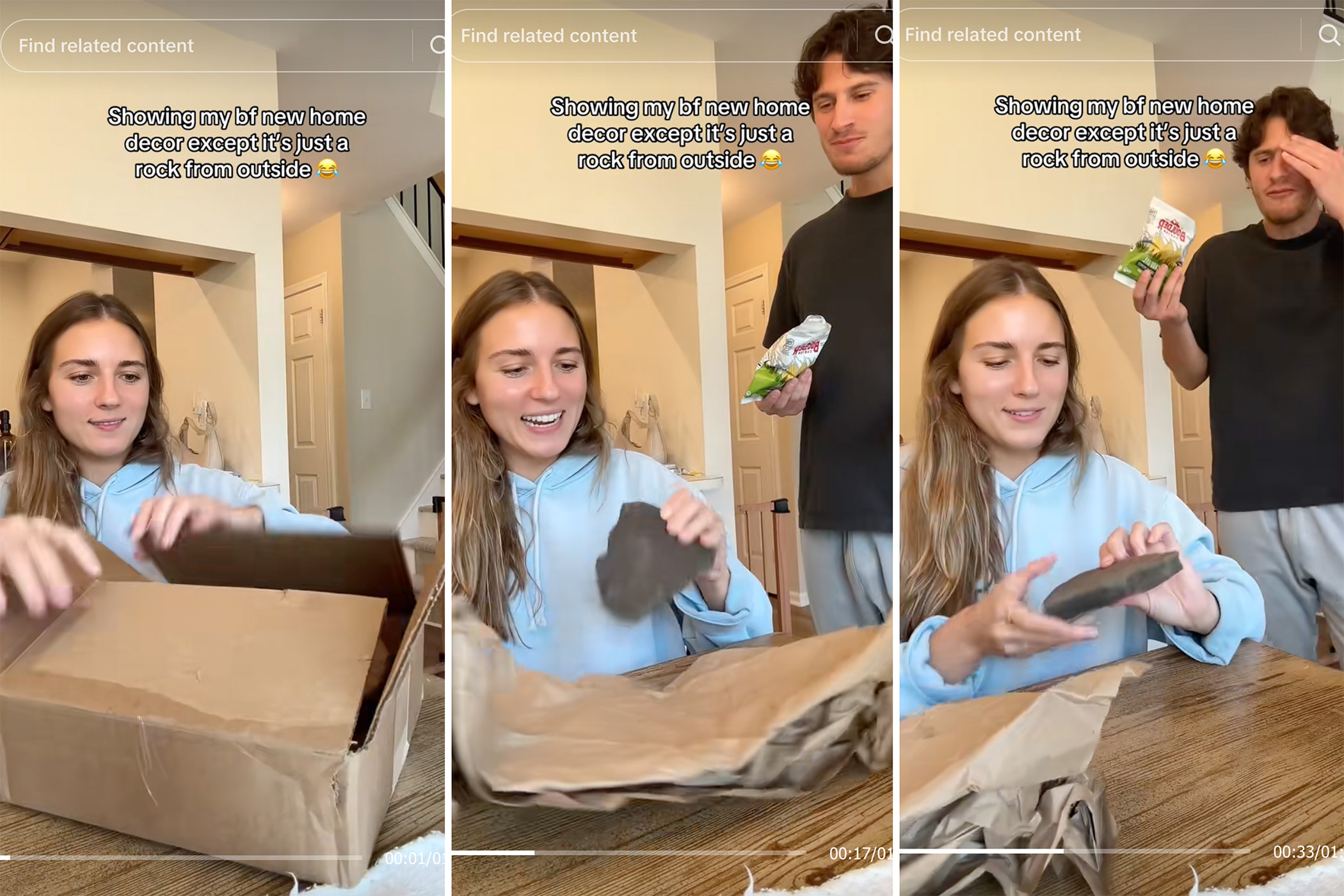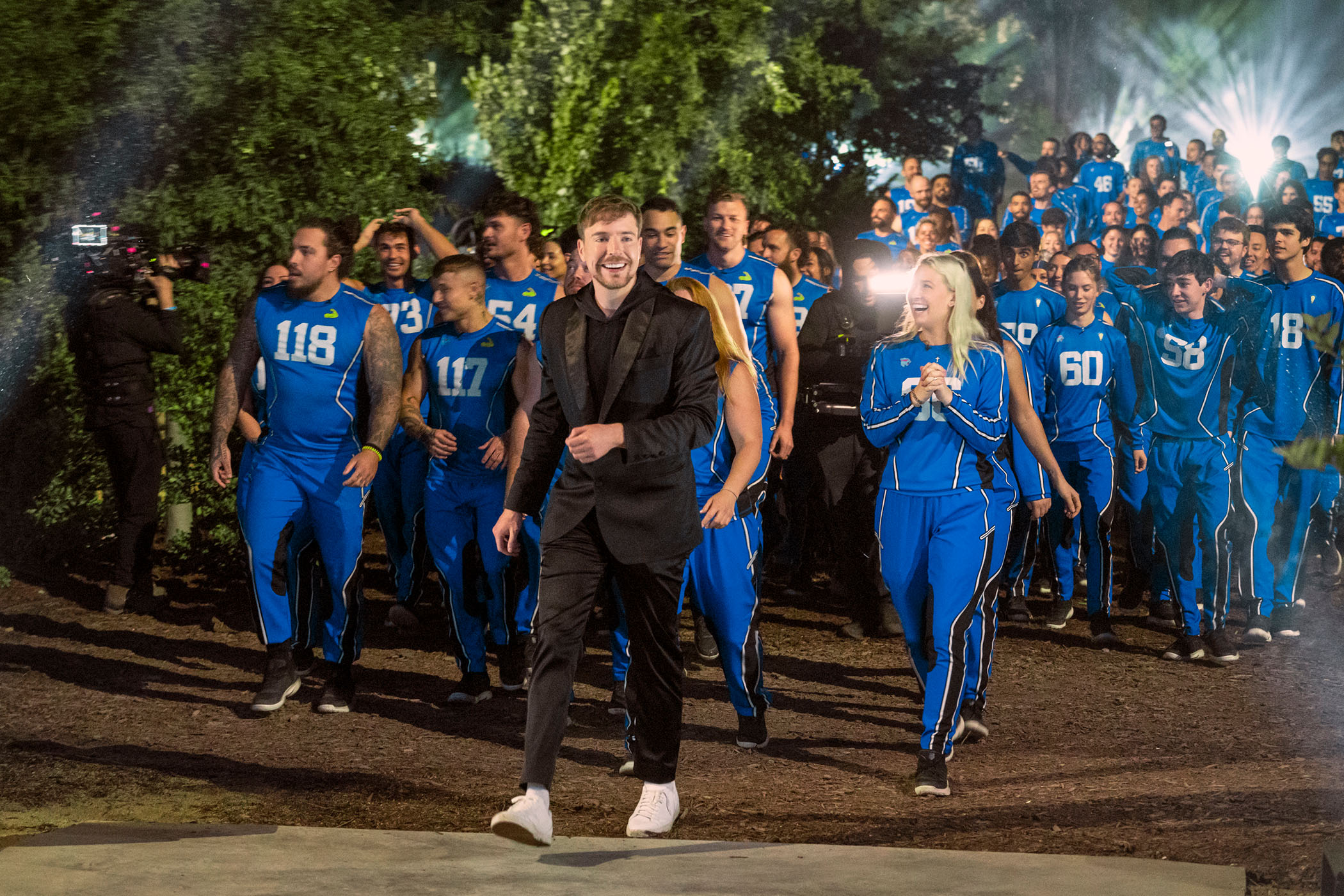Across TikTok and Instagram, influencers and social media personalities have been unboxing a new piece of home decor, the famous “Anthropologie rock”.
It began with a prank. TikToker Phoebe Adams uploaded a series of videos in which she tells her boyfriend that she paid $1000 for a rock centrepiece from Anthropologie, the retail chain popular for its bohemian home decor, peasant blouses, and scented candles. Adams’s original video has more than 11m views. Hundreds of people have since filmed their own “Anthropologie rock unboxings”, tricking their partners, siblings, and parents into thinking they have bought ordinary stones at obscene prices.
The trend mocks the way bougie statement pieces are hawked by influencers and celebrities. It also exposes the virality of digital marketing. Although the chain store is known for selling quirky, cute, and exorbitantly priced items, there is no Anthropologie rock collection. Yet the store has committed to the bit, inviting Adams herself to set up fake displays of rocks at her local Anthropologie branch.
According to Archrival, a youth marketing agency based in the US, this approach does work to draw in younger consumers. Taylor Jones, Marketing Manager at Archrival, said that it demonstrates that “user generated content” is preferred to memes and trends manufactured by the brands themselves, which can be “like when you’re joking with your siblings and your parents try to join in, but they kill the vibe.”
“Anthropologie leaning into the rock prank shows that they’re tapped into what their customer base is talking about online and it’s a great example of how brands can join in on the joke without ruining it,” she said. “The store associate took it to another level by creating the in-store display. It felt a bit unhinged for the brand to commit to the bit in that way and I think that’s why it landed so well with consumers.”
Authenticity is important to younger consumers, just as it is to a brand. According to Archrival’s research, whilst marketers believe that 55% of their brand’s adverts and marketing campaigns are relevant to Gen Zs, just 42% of Zs agree. Eight-five per cent of Gen Zs say it’s important for brands to create a sense of authenticity and community online. Anthropologie sells an image of bohemian domestic bliss and wellness, a place to buy handpainted stoneware adorned with colourful bows and a variety of collagen powders. Promoting a nonexistent product line may seem inauthentic in a literal sense, but by leaning into their customers’ own jokes and memes without overstepping, Anthropologie can appear more aligned with their values.
“I personally don't think it's harmful to the brand. Leaning into the joke can definitely be helpful as long as it feels playful rather than misleading,” Amy Billington-Li, founder of Lucky 8 PR, a London-based fashion and lifestyle PR firm, explained. “When brands join in on something like the Anthropologie rock prank, they’re not trying to trick anyone; they’re in on the joke with their audience. That shared humour builds a sense of community and shows the brand doesn’t take itself too seriously – which a younger audience really connects with.”
In other words, there are few better indicators that consumers want something than if it has become a meme.
Photographs courtesy Phoebe Adams/TikTok
Newsletters
Choose the newsletters you want to receive
View more
For information about how The Observer protects your data, read our Privacy Policy



